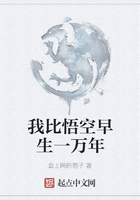How are they Determined?
I f several workmen were to be asked:
"How much wages do you get?", one would reply, "I get two shillings a day", and so on.According to the different branches of industry in which they are employed, they would mention different sums of money that they receive from their respective employers for the completion of a certain task; for example, for weaving a yard of linen, or for setting a page of type.Despite the variety of their statements, they would all agree upon one point: that wages are the amount of money which the capitalist pays for a certain period of work or for a certain amount of work.
Consequently, it appears that the capitalist buys their labor with money, and that for money they sell him their labor.But this is merely an illusion.
What they actually sell to the capitalist for money is their labor-power.
This labor-power the capitalist buys for a day, a week, a month, etc.And after he has bought it, he uses it up by letting the worker labor during the stipulated time.With the same amount of money with which the capitalist has bought their labor-power (for example, with two shillings) he could have bought a certain amount of sugar or of any other commodity.The two shillings with which he bought 20 pounds of sugar is the price of the 20pounds of sugar.The two shillings with which he bought 12 hours' use of labor-power, is the price of 12 hours' labor.Labor-power, then, is a commodity, no more, no less so than is the sugar.The first is measured by the clock, the other by the scales.
Their commodity, labor-power, the workers exchange for the commodity of the capitalist, for money, and, moreover, this exchange takes place at a certain ratio.So much money for so long a use of labor-power.For 12 hours' weaving, two shillings.And these two shillings, do they not represent all the other commodities which I can buy for two shillings?
Therefore, actually, the worker has exchanged his commodity, labor-power, for commodities of all kinds, and, moreover, at a certain ratio.By giving him two shillings, the capitalist has given him so much meat, so much clothing, so much wood, light, etc., in exchange for his day's work.The two shillings therefore express the relation in which labor-power is exchanged for other commodities, the exchange-value of labor-power.
The exchange value of a commodity estimated in money is called its price.
Wages therefore are only a special name for the price of labor-power, and are usually called the price of labor; it is the special name for the price of this peculiar commodity.which has no other repository than human flesh and blood.
Let us take any worker; for example, a weaver.The capitalist supplies him with the loom and yarn.The weaver applies himself to work, and the yarn is turned into cloth.The capitalist takes possession of the cloth and sells it for 20 shillings, for example.Now are the wages of the weaver a share of the cloth, of the 20 shillings, of the product of the work?
By no means.Long before the cloth is sold, perhaps long before it is fully woven, the weaver has received his wages.The capitalist, then, does not pay his wages out of the money which he will obtain from the cloth, but out of money already on hand.Just as little as loom and yarn are the product of the weaver to whom they are supplied by the employer, just so little are the commodities which he receives in exchange for his commodity --labor-power -- his product.It is possible that the employer found no purchasers at all for the cloth.It is possible that he did not get even the amount of the wages by its sale.It is possible that he sells it very profitably in proportion to the weaver's wages.But all that does not concern the weaver.With a part of his existing wealth, of his capital, the capitalist buys the labor-power of the weaver in exactly the same manner as, with another part of his wealth, he has bought the raw material -- the yarn -- and the instrument of labor -- the loom.After he has made these purchases, and among them belongs the labor-power necessary to the production of the cloth he produces only with raw materials and instruments of labor belonging to him.For our good weaver, too, is one of the instruments of labor, and being in this respect on a par with the loom, he has no more share in the product (the cloth), or in the price of the product, than the loom itself has.
Wages, therefore, are not a share of the worker in the commodities produced by himself.Wages are that part of already existing commodities with which the capitalist buys a certain amount of productive labor-power.
Consequently, labor-power is a commodity which its possessor, the wage-worker, sells to the capitalist.Why does he sell it? It is in order to live.
But the putting of labor-power into action -- i.e., the work -- is the active expression of the laborer's own life.And this life activity he sells to another person in order to secure the necessary means of life.
His life-activity, therefore, is but a means of securing his own existence.












